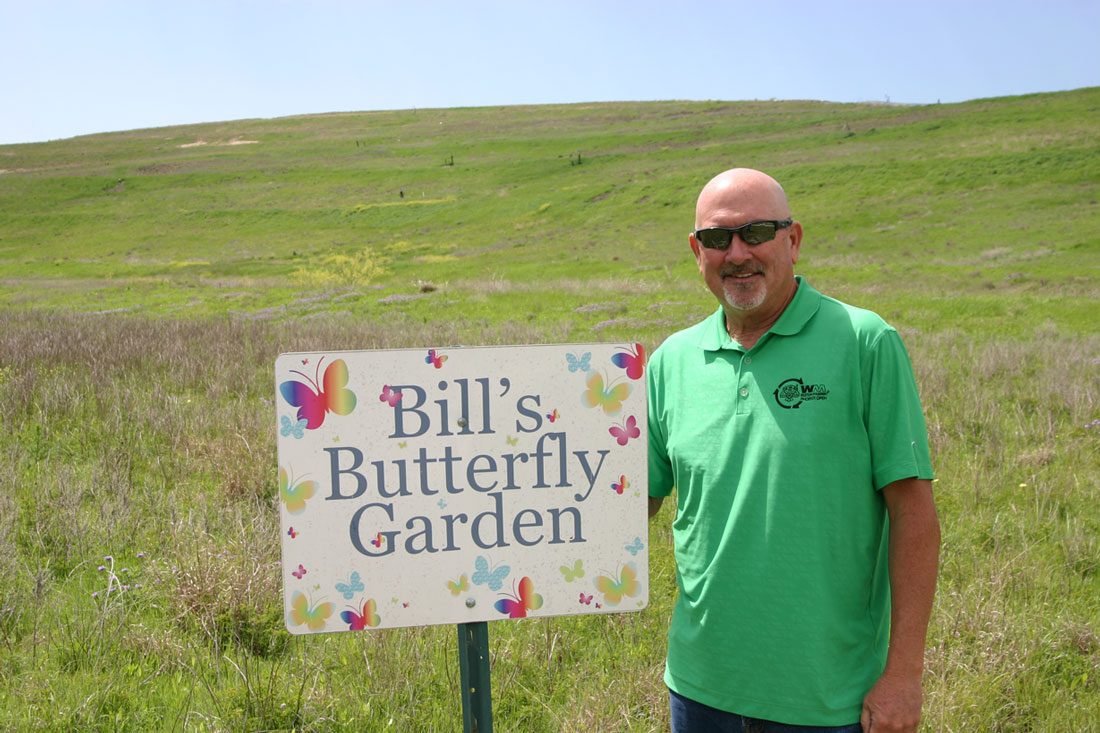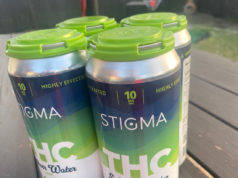Westbound motorists on I-30 enjoy a lovely view near the Linkcrest Drive exit in far west Fort Worth.
No, not the honkytonks, boarded-up liquor store, and adult video store whose big yellow “XXX” sign is missing half an X. That’s on the south side of the highway.
On the north side is a large, grassy, treeless hill offering a haven for wildlife, a hill that seems too pretty for this otherwise weary commercial district. Behind the hill and out of sight from motorists is a wildlife preserve like few others in North Texas. Large hills surround trees, a creek, and a couple of ponds, providing a place for turkeys, bobcats, coyotes, swans, ducks, and fish — a protected space in an otherwise bustling city.
The only things that seem out of place are the numerous vertical pipes that jut up from the ground every few yards — one of the few clues that the now-lovely property sits atop the city’s old Westside landfill. There are 95 pipes in all, each capturing underground methane through a complicated vacuum system and funneling it to one of three generators that produces enough electricity to power 2,700 homes a year. Many companies choose to flare off the methane from former landfills, but Fort Worth is putting it to good use.
The landfill served as the final resting place for about 17 million cubic yards of trash deposited there since 1977. Waste Management, which acquired the site in 1983, filled it to capacity over the years and then covered it with dirt in 2007. It’s been seeded with native plants and allowed to grow over and return to nature. About 290 of the property’s 325 acres are devoted to wildlife.
“I’ve been seeing a lot of wild turkeys back there,” said gas plant manager Phillip Keim.
Keim oversees the methane recovery system — three generators collecting the underground gas and using it to produce electricity. The U.S. Environmental Protection Agency considers landfill gas an environmentally friendly energy source providing an alternative to fossil fuels.
Keim and other employees sometimes wet their fishing lines in one of the ponds (all fish are released).
Steve Kellar, whose official title with Waste Management is public sector solutions manager, camps out there occasionally with family, and many youth groups have spent weekends exploring nature and camping out, under supervision. On a recent afternoon, despite the proximity of a major freeway, a visitor could hear nothing but a breeze and chirping birds.
“When you’re back here, you’d think you were in the Hill Country,” Kellar said.
The wildlife area, the methane recycling, and other green initiatives are among the reasons Fort Worth recently extended its contract with Waste Management to haul off the city’s solid waste and recycling. The solid waste deal was extended 10 years, while the recycling contract was extended five years. The company is planning to convert its truck fleet to run on natural gas rather than diesel and to build a fueling station for alternative-fuel vehicles. The station will include pumps for public use.
“It’s a $30 million investment into the city of Fort Worth,” Kellar said.
The city has been doing business with Waste Management for 30 years. The company reduced its rates during the recent negotiation, a big reason why the contract was renewed. But another factor was the company’s aggressiveness in becoming an industry leader in green initiatives.
“It’s definitely a consideration,” said the city’s solid waste manager, Kim Mote. “We’re a large city with a population of 760,000, and we have a significant impact on the environment. The city is looking at sustainability efforts in many areas.”
Residents generate about 300,000 tons of trash and recyclables every year.
Two public hearings on the proposed contract renewal drew few complaints from residents, and the city council signed the new contract in January. A handful of residents expressed reservations about extending the contract for such a long period, but Mote said a long-term contract provides more incentive for Waste Management to reinvest in operations such as the planned fueling station.
“We could even fuel our city vehicles there as well,” he said. “It’s a good move on their part. It benefits the city and them.”
And it benefits wild animals.
The Westside property was used as a rock quarry years ago. After the limestone had been harvested, the big hole was lined with a protective covering and converted to a landfill. Waste Management also built a transfer station on the site, where garbage trucks come to transfer their loads to other trucks that haul the stuff to one of the company’s other landfills in North Texas.
But the majority of the property remains wild.
A recent tour revealed ducks floating on ponds and several turkey vultures lounging near Mary’s Creek. Wildflowers were abundant. Not long ago, Kellar saw two coyotes crawling on their bellies while trying to sneak up on a flock of wild turkeys. (The birds flew away before the coyotes got to them.) The site has been certified by the Wildlife Habitat Council, a nonprofit group dedicated to restoring and enhancing wildlife habitat.
The ponds are stocked with a wide array of fish to maintain the ponds’ ecological integrity. Kellar pulled an 11-pound bass out of the pond once, and Boy Scout troops and other youth groups have had plenty of luck as well.
Former facility manager Bill Johnson started many of the sustainability initiatives. An area seeded with plants to attract monarch butterflies is named in his honor. At certain times of the year, Kellar visits the butterfly garden, and “You look out there, and all you see is gold,” he said.
On its western edge the property adjoins the Walsh Ranch, which is slated for a major development in the coming years. But a large strip of the ranchland will be left undeveloped, as a buffer between new homes for people and a newly redeveloped home for other critters.












